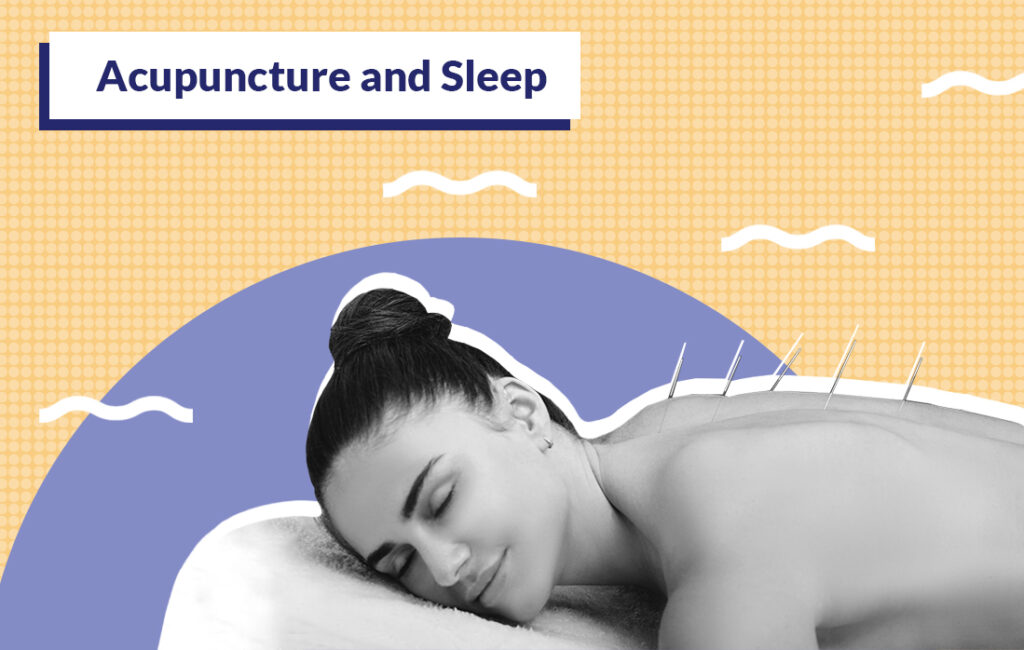Do you find yourself tossing and turning at night, struggling to fall asleep? Or perhaps you wake up frequently throughout the night, leaving you feeling exhausted during the day. If this sounds familiar, you’re not alone. Millions of people struggle with sleep issues every night. But did you know that acupuncture could be the solution to your restless nights? In this blog post, we’ll explore how acupuncture can help you achieve a good night’s sleep and wake up feeling refreshed and rejuvenated. So get comfortable, grab a cup of tea, and let’s dive in!
Table of Contents
Introduction to Acupuncture
Acupuncture has been used for centuries to promote good health and well-being. It is based on the belief that there is an energy force or “life force” that flows through the body. This life force is known as qi (pronounced “chee”). Qi is responsible for our physical, mental, and emotional health. When qi is balanced, we are healthy. When it is unbalanced, we are more susceptible to illness and disease.
Acupuncture works by stimulating the flow of qi in the body. This can be done by inserting thin needles into specific points on the body called acupuncture points or acupoints. The needles help to unblock any areas where qi may be blocked and restore balance to the body.
Acupuncture is a safe and effective treatment for many conditions, including pain relief, anxiety, stress, insomnia, and more. It can be used as a standalone treatment or in conjunction with other forms of medicine.
How Acupuncture Can Help You Sleep Better
Acupuncture is an ancient Chinese practice that involves inserting thin needles into the skin at specific points on the body. It is said to promote healing and well-being and is commonly used to treat pain.
Recent studies have shown that acupuncture for insomnia has shown tremendous results. One study found that acupuncture was more effective than medication in treating insomnia.
Acupuncture works by stimulating the release of chemicals in the brain that promote relaxation and sleep. It can also help to regulate the body’s natural sleep-wake cycle.
If you are struggling with insomnia, acupuncture may be worth considering as a treatment option. Acupuncture is generally safe and has few side effects. Always consult with a qualified healthcare practitioner before beginning any new treatment.
What to Expect During an Acupuncture Treatment
If you’ve never had acupuncture before, you might be wondering what to expect during your first treatment. Here’s a quick overview of what you can expect:
First, your acupuncturist will take a detailed medical history. They’ll want to know about any sleep problems you’re experiencing, as well as any other health concerns. This information helps them create a personalized treatment plan for you.
Next, they’ll ask you to remove any clothing or jewellery that might interfere with the needles. You’ll then be asked to lie down on a comfortable treatment table.
Once you’re settled, your acupuncturist will begin placing needles into specific points on your body. Most people report feeling very relaxed during this process. Some people even fall asleep!
After the needles are in place, your acupuncturist will leave the room and give you time to rest. The needles are usually left in for 20-30 minutes.
Once the treatment is over, your acupuncturist will remove the needles and give you some tips on how to improve your sleep habits. They may also recommend other lifestyle changes that can help with insomnia.
Benefits of Acupuncture for Sleep
Acupuncture has been used for centuries to promote better sleep. This traditional Chinese medicine practice involves inserting thin needles into strategic points on the body. Studies have shown that acupuncture can be effective in treating insomnia and other sleep disorders.
There are many benefits of acupuncture for sleep. Acupuncture can help you fall asleep faster and stay asleep longer. It can also improve the quality of your sleep, so you wake up feeling refreshed and well-rested. Acupuncture can also help to relieve stress and anxiety, which can make it easier to fall asleep and stay asleep through the night.
Risks and Safety Considerations
Acupuncture is considered a safe and effective treatment for insomnia and other sleep disorders, but there are some risks and safety considerations to be aware of.
Acupuncture is a form of Traditional Chinese Medicine (TCM) that has been used for centuries to treat a variety of health conditions. In TCM, it is believed that energy, or qi, flows through the body along pathways called meridians. When this energy flow is disrupted, it can lead to illness or disease.
Acupuncture involves the insertion of thin needles into specific points on the body to restore balance and promote healing. This can be done either by a trained practitioner or at home using self-administered acupuncture kits.
There are a few risks associated with acupuncture, such as bruising, bleeding, or soreness at the needle site. These are usually minor and temporary side effects. More serious risks are rare but can include punctured lungs or collapsed veins.
It’s important to only receive acupuncture from a trained and licensed practitioner in order to minimize the risk of complications. If you’re considering self-administered acupuncture, be sure to do your research and use sterile needles to avoid infection.
Conclusion
Acupuncture is a great way to get natural relief from insomnia and other sleep-related issues. This ancient healing practice can help you relax, reduce stress levels, and improve the quality of your sleep. If you’re looking for an easy, safe way to get a good night’s rest without relying on medication or alcohol, give acupuncture a try! With consistent treatments over time, you may just find that it has all the answers to getting those much-needed Zzzz’s.

